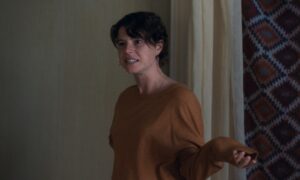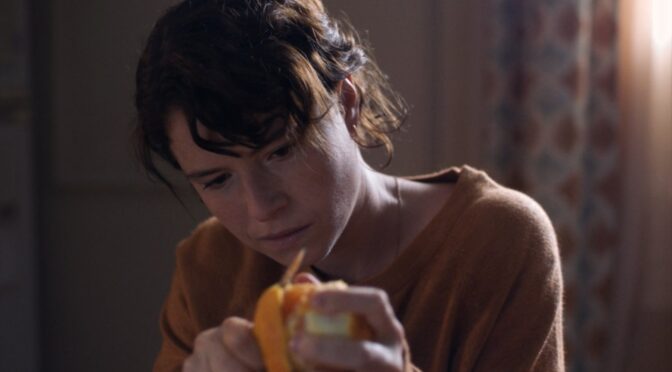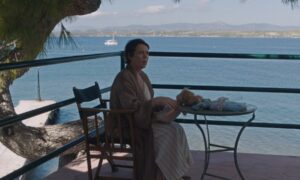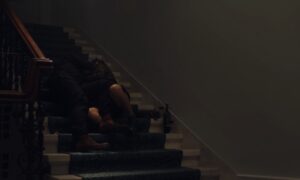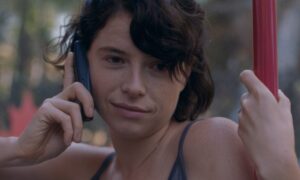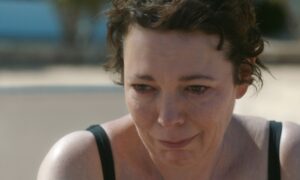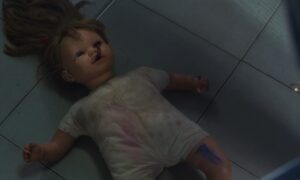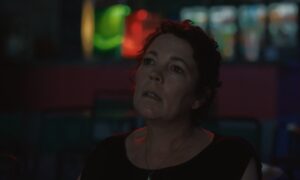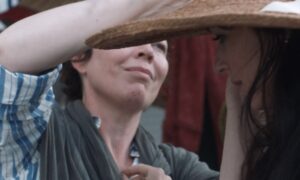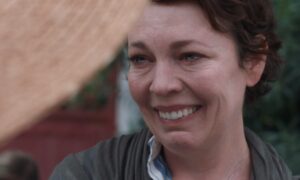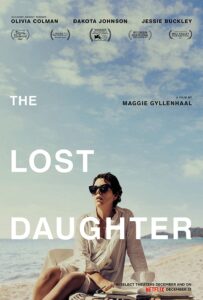
Over the past decade or so, and for the COVID years especially, I’ve noticed a lot of friends expressing a desire for characters of the sweet and sympathetic sort. Many of them have experienced enough anxiety of late that it’s become difficult to willingly reach out to works of art that deal in strife, misanthropy and bad decisions. As an avid consumer of the humanist works of Richard Linklater, Mike Mills, and Greta Gerwig, it’s a sentiment I fully understand. I’ve taken deep, soul-healing solace from drinking from the fountains of kindness offered by shows like Ted Lasso and Steven Universe, and films like A Beautiful Day In the Neighborhood and Paddington 2. But like some cinema nutritionist, I feel it is my duty to urge all of you to continue to seek out film experiences, and specifically characters, who are abrasive and unsympathetic. I feel it is deeply healthy to include some unlikeable people and upsetting experiences as part of your cultural diet. Think of it as cinematic roughage, if you will. If art offers us the chance to gaze into a kind of mirror that reflects parts of ourselves while also allowing us to see facets and flaws we would want to avoid, then there’s a huge value in having that mirror be as expansive as possible. It should show us not just our best or most aspirational selves but the darker places human beings can go too. We should not only look into the mirror to see how we should be, but to remind ourselves of the more uncomfortable truths of what we can become at our most selfish, proud, or irrational. There’s also the fact, evidenced by shows like Succession and films like the Safdie Brothers’ Good Time and Uncut Gems, that watching deeply toxic people fuck up and squirm can be a lot of smart fun in the right hands. In those aforementioned art works, watching seedy, short-sighted and greedy fools stumble about can feel like riding a rollercoaster, a vicarious scream through some of the most thrillingly bad decision-making imaginable. But what of those of us who want to get the complex joys of watching not entirely sympathetic characters at a less hectic, punishing pace? What about those of us who just want to spend a relaxing time floating along in the Lazy (or Greedy, or Selfish) River? In 2021, celebrated actress and sterling debut director Maggie Gyllenhall had you covered on that front. Her phenomenal freshmen outing, The Lost Daughter, offered up all the giddy, perverse delights of watching prickly characters flail about, but at a more hypnotic, soulful pace. Gyllenhall’s adaptation of the novel by felt like reading a great book in all the right ways; cinematic but carried along by a sophisticated current of dialogue. Her perceptive, often sorrowful look at a woman who puts herself first and foremost has all the spicy fun of wrestling with an unlikeable (or at the very least frustrating) character, just with its own distinctively literary flavor. To fellow fans of wholesome cinema who want to branch out into something just a bit more acidic, The Lost Daughter is like a bracing shot of very strong limoncello. It should make your lips pucker and make the blood rush to your head, but without leaving you hungover and useless the next day.

What makes The Lost Daughter such a tingly, unnerving experience is its willingness to look candidly at a character archetype that has too often been rendered in black and white. The role of the mother is one that bears a tremendous burden in our society. Our culture has longed preferred its screen and page mothers to be shiny and lacking in warts. Angelic, loving, self-sacrificing, and defined by their unflagging desire to nurture their children and husbands. When mothers don’t meet these needs, they have tended to fall onto the other end of the dichotomy: wicked stepmothers, deadbeat parents, and shrill stage moms. The Lost Daughter is about neither of those two opposing character types. It is about a woman somewhere in between. Certainly not a good mother but maybe not an abysmal one either. We meet Leda (a dependably spectacular Olivia Colman in what could be her best screen performance), a 48-year professor and celebrated academic, arriving on a remote Greek island. She is ready to begin a blessedly solitary vacation there but that humble goal is continually frustrated by the existence of other human beings.. What we pick up almost instantly is that Leda is not one to small talk with strangers. She is politely terse with Lyle (a welcome and very strong Ed Harris), the groundskeeper tasked with taking care of the islands’ apartments, in spite of his best efforts to break through her superficial veneer. She seems slightly put off whenever the handsome Irish cabana boy walks up to her beachside chaise lounge to ask if she needs anything. And she is completely beside herself (in a flummoxed, quietly seething British way) when an entire large family of boorish Italian tourists crash the very beach resort she has chosen as an ideal hideaway from the world. Leda is the type of person whose eyes are forever looking for the quickest way to exit a conversation; the type of person who is maybe only entirely themselves when they are alone. The Lost Daughter is already a fascinating, nuanced portrait of a misanthropic introvert trying to adapt to a peaceful holiday gone awry before we learn about Leda’s past relationship with her ex-husband and children. Through flashbacks to Leda in her late twenties (played excellently by meteorically ascending star Jessie Buckley), when she was married with two young daughters, we get the story of how Leda tried and, in some respects, failed to make it as a mother. That’s not to say Leda completely abandoned her children. In the present, we see her occasionally talk amicably to her two daughters, now in their twenties, on the phone and there seems to be a nice enough conversational relationship between them. But we witness a chapter in Leda’s life in which a maternal role that she not so quietly resented came into conflict for a chance to become a luminary in her field (translating classic poetry into Italian) and she did not make the classic, selflessly maternal choice. It is a choice that clearly gave her the life she wanted and she did get to reconnect with her children eventually, but Colman brilliantly reveals how those past choices weigh on her. The weight almost becomes too much to bear when that brash, raucous group of Italians (the perfect family-oriented foil to Leda’s cool independence) stampedes into town with kids in tow. Leda ends up mixed up in some tricky business with a young mother (Dakota Johnson, as good as she’s ever been) and her daughter, a stolen baby doll, and an overbearing sister who seems keen on knowing why Leda hasn’t brought her own children on vacation. What Gyllenhall has made is a disorienting but soulful meditation on the heavy yoke of motherhood, the familial expectations women shoulder, and the bittersweet choices people must make in determining what personal success means to us. It’s a sorrowful but also liberated torch duet between one woman’s present and past. In a society that expects its mothers to give up everything for the greater good of their children and men, it’s mainly about a woman blessed and cursed with the inability to not look after herself. It’s imbued with a strong feminist spirit, but it also frequently leaves all of Leda’s prickly narcissism to flap naked in the breeze. Whether strong-willed or submissive, self-promoting or subservient to the will of others, everybody has to live in the shadow of their past.
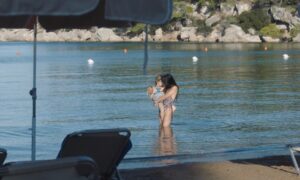
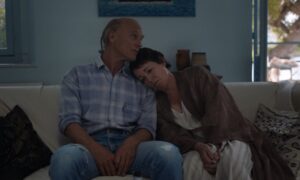

What impresses me most about Maggie Gyllenhall’s graceful sense of psychological depth here is that she could have easily made a whopper of a film just based on the theme of the colossal burdens placed upon mothers and the simplified notions of how mothers are supposed to feel for their children. In that one respect alone, The Lost Daughter is one of the most boldly honest and compassionately unflattering films about the maternal instinct ever made. Like Jennifer Kent’s 2014 horror masterpiece The Babadook, it dares to speak candidly about adjusting our expectations for what it means to be a mother. Both films anchor themselves to impeccable tour-de-force lead performance and trust their great actresses to render beautiful, unsettling, even alarming portraits of people for whom mothering does not come easily or naturally. “You’ll see,” Leda tells the pregnant Callie, who has just finished gushing about the child she will soon have. “Children can be a crushing responsibility.” In the present day, we watch Leda watch the Dakota Johnson character’s daughter invade her mother’s space, drench her while she is sleeping, yank her about, place fingers in her mouth. And we see that ,whatever part of Leda loves her daughters, she loves her personal freedom and agency just as much. In flashbacks to her past with her own 7-year old and 9-year old daughters, we see how Leda would have reacted to such invasions very differently. To many, a steady, kind-hearted mother knows that children will be children. Maybe Leda sees this young mother’s every moment of peace being disrupted and wonders why she too couldn’t just bear it silently and patiently; why she couldn’t give her own children’s obnoxious invasiveness a pass. Most people probably would give very young children such a pass, but we learn that the younger Leda was not such a paragon. When the younger Leda’s child defaces a doll that had belonged to her as a girl, she finds she does not have the ability to tamp down her honesty and righteous anger. “This is my doll. You can’t treat her like shit,” she bluntly asserts into her daughter’s face. And, whether some part of Leda regrets that brusqueness or not, the fact is that Leda could not control it if she wanted to. Gyllenhall fearlessly delves into what a frightening and enlivening thing that must be to realize. From careers to friendships to parenting, we center so much of our lives around certain obligations that we have been told simply cannot be broken. But what happens when those mores lose their power. What happens if even that supposedly ironclad sense of obligation of a parent to their child suddenly begins to groan and fray? On some level, I think Gyllenhall is arguing that it is untenable for any parent to think that they can suddenly shut away fallible and human parts of themselves just because of the great responsibility of childbirth. What Leda learns is that a certain portion of her own vibrant (and, yes, also selfish) humanity cannot be tamped down. The Lost Daughter does not ask that you agree with Leda’s distant and sometimes unloving parenting decisions, or even that you necessarily think of her as an entirely wholesome person. Gyllenhall just wants you to realize that mothers like this exist and that most mothers deserve to be seen in richer hues than the tranquil madonnas and shrill abusers that so much of literature allows them to be. For creating a portrait of complex motherhood this simultaneously unapologetic and empathetic, Gyllenhall deserves consideration as one of the most sensitive and exciting new directors of recent years. This goes beyond simply recognizing how this source novel has important things to say about how society views female parenting. What she displays here is an exquisite talent for understanding her source material and figuring out how to tease out its themes in ways both literate and cinematic. And, again, directing at least two of the year’s very best performances is no small accomplishment either.
I find myself in the position once more to explain why a film that is not remotely meant to be a comedy is rather shrewdly funny to me. That seems to be happening more and more often, but I guess you take comedy wherever you find it in this world. This film has so much on its plate with being a small-scale tragedy and a powerful feminist critique that it surprised me how quietly tickled I was by much of it. Perhaps, as an introverted person myself, there is just something amusing and relatable in how Leda’s face winces at the sight of that gaudy, foul-mouthed Italian throng moving like noisy Mediterranean squall right for her little patch of sand. You don’t have to be quite so misanthropic as Leda herself to feel the familiar aggravation of wanting to be alone and finding that solitude interrupted. And once you know who Leda is, it’s hard to imagine the gods cooking up a more perfect little torment for her than this braying, oiled up gaggle of lowbrow tourists. Hell, as Jean Paul Sartre mused, is other people. And Gyllenhall’s The Lost Daughter smartly adds, “Just don’t forget, you’re one of them.” Much of the film’s richness comes from how the crass Caruso clan tries to unsubtly tries to break up Leda’s loneliness and how Leda rebuffs them. Most of them, particularly the pregnant Calista (Succession‘s Dogmara Dominczyk, a brilliant barrel of gunpowder primed to go off at any second) pick up on exactly the kind of unpleasant loner Leda is when she refuses on general principle to switch lounge chairs with them so that their enormous family can all be together. Their testy first meeting and the occasional friendly exchanges (Leda reaches a brief peak of social acceptance with the Carusos when she helps find a missing child) add up to one tense week. Neither side will leave this film looking sympathetic. On the one hand, Leda bluntly refuses to be the least bit of accomodating with them in her flagrantly asocial way. On the other hand, this is her spot and her vacation and one of the buffoonish Caruso youths calls her the C-word. And as we will come to know very well, Leda places a different, lesser priority on family than most people, especially the vulgar Olive Garden commercial that has just pulled up next to her. For as much as these two diametric opposites, proudly alone Leda and the Italian chorus of Carusos, try to play nice with each other, there is a sense that they all know exactly who the other is from that first scene. I think they grasp right away that they don’t and won’t much care for each other. To refer to one of The Lost Daughter‘s central visual motifs, this heightened character study is a bit like unpeeling an orange on a human scale. It may start with a polite veneer of civility, but it becomes a story of human beings very unbrasively revealing themselves to each other and to us. I wouldn’t say many of the film’s characters are models of civil behavior, but I do think Maggie Gyllenhall is revealing something perversely empowering in Leda’s total lack of tact and inhibition. Long ago, Leda learned the hard lesson that not even her adorable children and doting husband could keep her from putting herself first. The lusciously sharp characterization that Olivia Colman presents us with is of a person who has long stopped being afraid of their own meanness and self-interest. In that wonderful Olivia Colman way, she is able to put a chipper “oh well, here I go again” spin on introversion and misanthropy. This is what the rollercoaster of unlikable characterization can be at its best. It can be a revealing look into a cracked mirror where we imagine what life might be if we acted less decently, if only to help us cling to our goodness and empathy all the more firmly. This is, once again, not a story of humanity at its best. But it is a rather thrilling call of the inner wild; a meditation on everything great and terrible we might become if we gave in fully to our egomania and selfishness. Some films make you want to be a better person. This asks you to consider for a couple of hours what it would be like to be a worse one.
I do think The Lost Daughter would be absolutely worthy of being counted among 2021’s most sharp, empathetic and tonally powerful films if it were just an essay on the crushing expectations placed on mothers and the brazen bravery of one prickly woman’s candid admission that she is just not a natural fit for the role. That, among all the things she could be great at, motherhood just does not rank anywhere for her. That idea by itself is fascinating and important in forging a conversation about parenting. But what makes The Lost Daughter truly brilliant is how that mothering narrative tucks coherently into the story of Leda trying to enjoy a holiday without a groundskeeper, cabana boy or entitled Jersey Shore cast member killing her vibe. The holiday is not just a framing device for us to look back into Leda’s past. It allows the film to turn into something more full and human and disquieting. In both its present and its past, The Lost Daughter is about how every individual chooses for themselves how much they want to participate in the social contract. We all choose how selfish we want to be, maybe have to be, while still being able to look at our own reflections each day. The is about realizing that only you can decide how much of an island you want to become, but it also reminds us that no person is as much of an island as they may think they are. For all Leda’s defiant individuality, the events of her vacation and the reminiscing they inspire do shake her up. Her desire to maintain her boundaries and find inner peace will have to be postponed until the next getaway. Whether it’s one’s own children, family ties or a friendship, every relationship asks us for a conscious choice on how much to put into it. And every ounce of ourselves we pour in is a little less we have to apportion elsewhere. How do you divvy that time and energy up and how much of yourself to do you save for, well, yourself? It’s an uncomfortable question, one that almost feels selfish just to write out. But narcissistic, unlikable Leda has give me a reason to pose it to you and to myself. As someone who tries to support loved ones and meet obligations and spend time enriching people outside of myself, there is still a greedy little goblin within me who looks at all that time and energy expended and whispers the question Bilbo asked of Sauron’s ring. “Why shouldn’t I have it?” The Lost Daughter gives you an answer for why it might be best that you don’t live a life centered around yourself, which is that you might become like Leda. And that’s also the film’s answer for why you maybe also should. We feel a rush watching the younger Leda bust through the walls of domesticity and fulfill her wildest dreams, professionally and sexually. Despite her mental anguish over the course of this week, I don’t think Gyllenhall is ever saying that Leda wishes she had chosen another path. She just realizes or remembers the obvious, which is that every decision has an emotional weight that gets added to our future lives. Even a beneficial decision is a thing we have to live with and none of us can simply pretend that our actions don’t affect others. Placing all our efforts into self-care and self-fulfillment carries consequences too. In the end, we all make our choices and pay the bill when it arrives.
I found it enriched The Lost Daughter‘s understated, dark humor to imagine it turning into an entirely different kind of movie experience. I thought about the kind of generous, quirky vacation rebirth film it could have been with just a few tweaks. With the same basic bone structure, you can picture the redemptive story of a frigid, driven career woman with a hermit’s chip on her shoulder. Her hardened heart just waiting to be inevitably softened and seduced by the enchantment and friendliness of this dreamy Greek island. The Best Exotic Absentee Mother Hotel. Leda’s at-first intimidating, icy veneer would melt away in the balmy Mediterranean climes and the overbearing tourists and endearingly nosy hotel staff would win her over bit by charming bit. The Carusos, heavily implied to be unsavory and possibly violent Mafiosi in the film, could easily be declawed for a gentler story of kooky opposites bringing out the best in each other. They could keep their mob ties but in a more goofy, non-threatening way. The pasta jokes and hilarious Italian swear words would become part of the great, rib-tickling tidal wave that eventually sweeps Leda away from her isolationism. The Carusos would help Leda become a more social person and Leda would pretend to be annoyed with them but she would also secretly appreciate them for reminding her of the joys of connecting with the world around her. And at the end of a sun-dappled, crowd-pleasingly idiosyncratic, unexpectedly life-affirming week, she would bid the obnoxious but well-meaning Italian clan goodbye with an affectionate eyeroll. And that final phone call with her adult daughters would overflow with teary pathos and a newfound appreciation for family. But that’s not how this story goes. The call is nice but politely strained. Leda does love her daughters but they will never be the thing that moves or excites her. She has learned to be there for them in her way, but the faint remnant of a wound will always be there on that relationship. Leda has to live with that and she is able to live with that. Because this is not the story of a difficult woman learning a life lesson about opening her heart or being more conscientious of others. She’s not going to change. She’s simply going to go on feeling the same pang of melancholy. The one she’s probably carried with her ever since she made that fateful sharp turn toward self-fulfillment. That soft, manageable sadness that can’t quite be called regret because she wouldn’t do anything differently. There is no coming to Jesus. There is no shrew to tame. This is just who she is and who she always will be. In the immortal wisdom of The Big Lebowski, she’s not wrong. She’s just an asshole.
